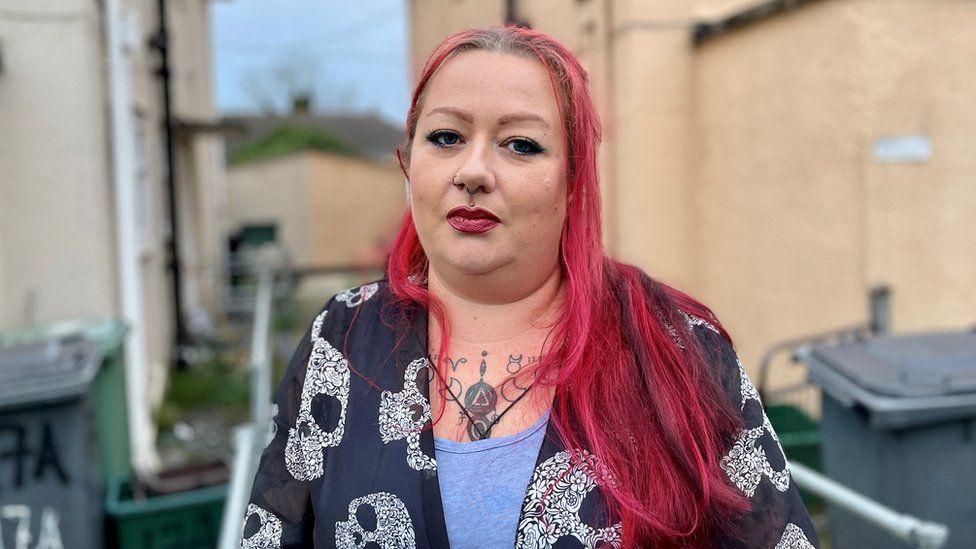
Doctors are prescribing heating to patients with conditions that get worse in the cold as part of a health trial.
The Warm Home Prescription pilot paid to heat the homes of 28 low-income patients to avoid the cost of hospital care if they became more ill.
The trial achieved such good results it is being expanded to 1,150 homes.
Michelle Davis, who has arthritis and serious pulmonary illness, had her energy bills paid for and said the difference was "mind-blowing".
Energy costs have soared in part because the war in Ukraine has reduced supplies of Russian gas. The government has stepped in to cap prices but it still means bills for a typical household will go up to £3,000 from April.
The mum-of-two teenage daughters took part in trial backed by NHS Gloucestershire between December 2021 and March 2022 when she didn't pay a penny to keep her home warm and bright and charge her mobility scooter.
"When the weather turns cold, I tend to seize up," she told the BBC. "It's very painful, my joints ache and my bones are like hot pokers."
In 2020 Ms Davis spent most of the winter in bed, trying to keep warm and was admitted to hospital with pneumonia and pleurisy. But not in winter 2021.
"You're not stuck in bed, you're not going to hospital, my children were able to have a life, they were able to go out and play and get cold," she said.
She welled up as she described being able to warm her kids pyjamas on radiators and have a good Christmas. "I was able to be a Mum," she added. "And my kids could be kids, not just carers."
'No-brainer'
Academics estimate that cold homes cost NHS England £860m a year and that 10,000 people die every year due a cold home. But that research was completed before the current cost of living crisis took hold.
This first trial achieved such good results, that it's being expanded to 150 households in NHS Gloucestershire's area, plus about 1,000 in Aberdeen and Teesside.
Energy Systems Catapult is the organisation behind the pilot. With the backing of GP surgeries and a local energy charity called Severn Wye, NHS social prescribers, who visit those with long-term conditions in their homes, were able to identify people who would benefit.
Dr Matt Lipson helped design the pilot programme and feels like this preventative step is a no-brainer for the health service.
"If we buy the energy people need but can't afford, they can keep warm at home and stay out of hospital," he said. "That would target support to where it's needed, save money overall and take pressure off the health service."
The change in patients was swift: "The NHS were telling us they were seeing a benefit much more quickly than pills and potions," Dr Lipson added. "It was taking days, not weeks and months."
'Saved money and workload'
While Michelle was warm at home, more than 2,000 patients not on the trial but with similar conditions in Gloucestershire fell seriously ill or needed emergency hospital care. This cost local NHS services an estimated £6m.
Dr Hein le Roux's surgery in Churchdown, just outside Gloucester took part.
He said: "Usually we wait until people get sick and then go out and see them, or worse they end up in hospital. But it's actually saved a lot of money for other services and also saved our workload."
It's given Dr le Roux a boost professionally, too. "It was just a fantastic feeling to know you're doing your job properly rather than going to see sick people," he said.
Ms Davis' monthly bill for gas and electricity has crept up to over £250 this year.
"For a disabled Mum on benefits, it's a lot of money," she said. She does not yet know if she'll be able to participate in this winter's trial so she's cutting back to save money.
But even getting one year off has given her respite and headspace to feel healthier: "If everyone was able to have this experience I had, it could really change peoples lives."
From BBC
